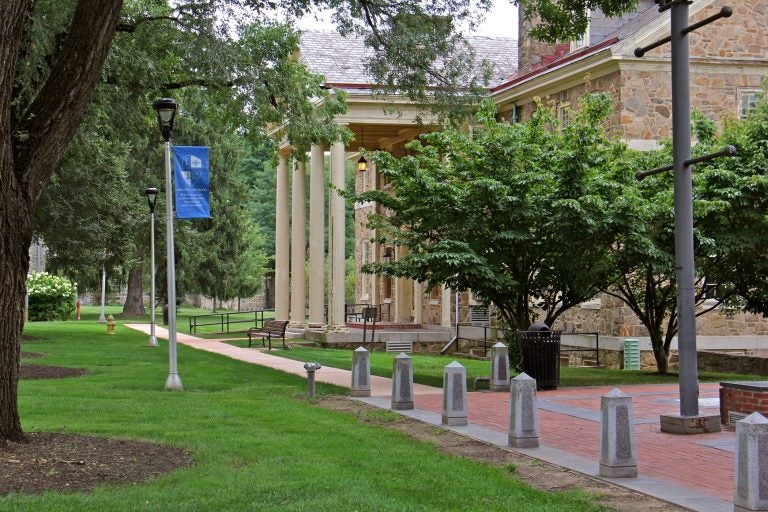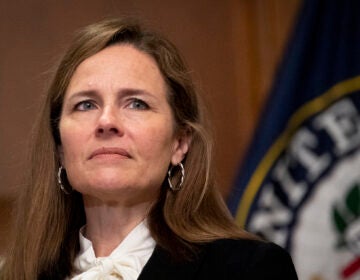Historically black colleges, universities get boost under measure sailing through Congress
Legislation to strengthen the partnership between historically black college and universities is on a fast track to become law.

Browne Hall on the quad at Cheyney University. (Emma Lee/WHYY)
Two weeks ago, U.S. Sen. Chris Coons of Delaware introduced legislation to assist historically black colleges and universities.
And last week, the bill passed the Senate on its way to the House.
Coons is known as a methodical lawmaker. But when his bill to help HBCUs sailed through the usually slow-moving Senate in roughly a week, he was giddy.
“Rocketship fast,” said Coons. “Is that not fun?”
The legislation aims to force relevant federal agencies to, in effect, give HBCUs a seat at the table with other academic institutions when it comes to research grants and contracts. Agencies would have to plan and coordinate their efforts to support and expand HBCU participation in those programs. What’s more, the agencies would be required to track their progress and share their plans with Congress.
“I think it is significant that America’s historically black colleges and universities have a clear pathway toward participation in federal contracting and grantmaking,” Coons said.
The changes will benefit Cheyney and Lincoln universities in Pennsylvania, Delaware State University and the 104 other HBCUs across the country.
U.S. Rep. Lisa Blunt Rochester, a member of the Congressional Black Caucus, said another important part of the bill is “that the agencies will have accountability.”
“There will be actual plans. That’s what people are looking for – they’re looking for transparency. They’re looking for accountability, and they’re looking for efficiency,” said the Delaware Democrat. “And I think this bill actually achieves all of those.”
The legislation basically codifies and strengthens an executive order that President Donald Trump signed in 2017. And Blunt Rochester says having it passed by Congress means it will outlast Trump.
“I think this is a real opportunity for us to put into law and to say, ‘This is the standard operating procedure you should have. When you’re thinking about grants, don’t forget these organizations, these universities are out there. When you’re thinking about programs, factor this in,’ depending on what agency is doing the plan,” Blunt Rochester said.
The HBCU legislation is expected to sail through the House soon.
WHYY is your source for fact-based, in-depth journalism and information. As a nonprofit organization, we rely on financial support from readers like you. Please give today.




